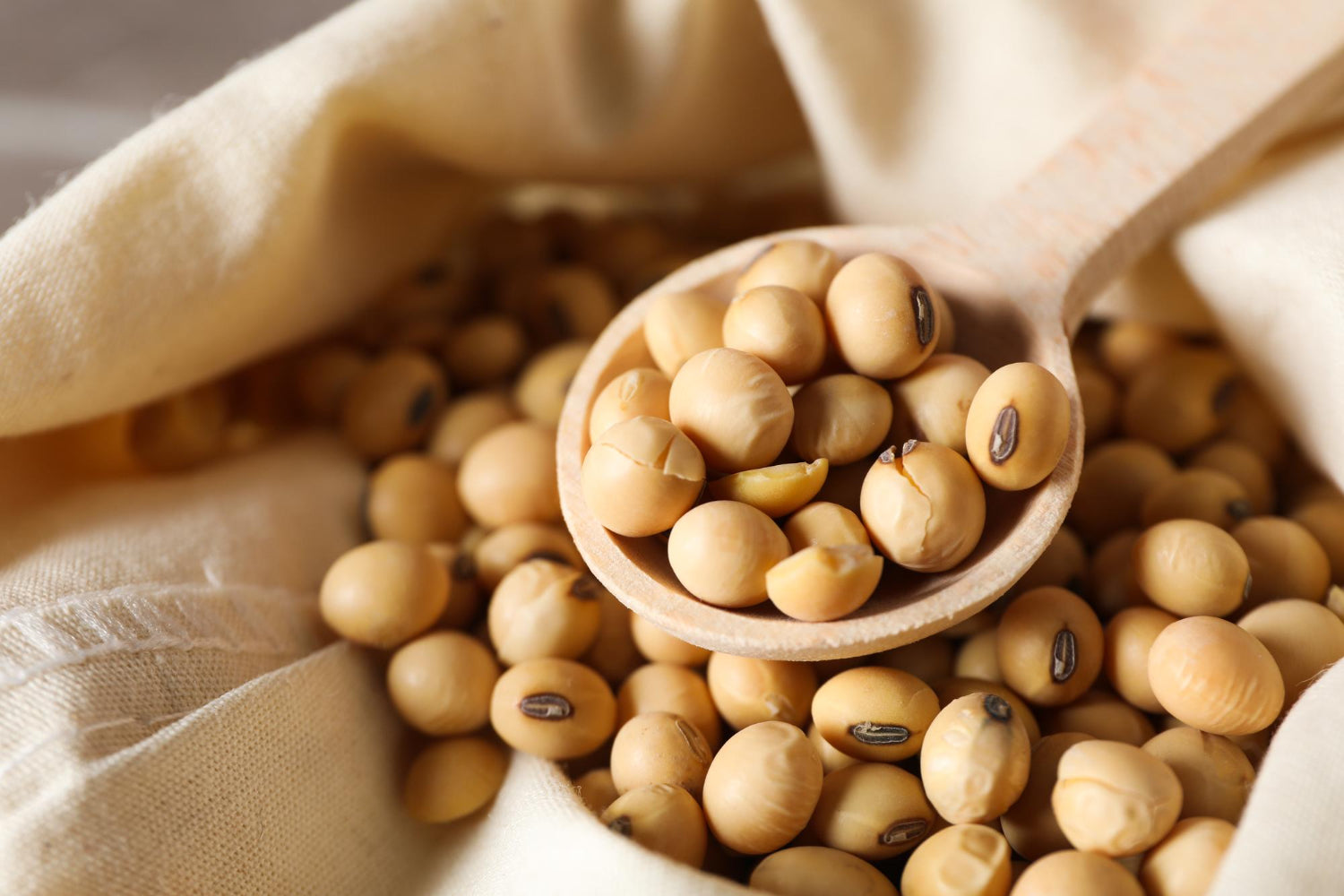Organic or specialty ingredients refer to natural, non-synthetic inputs often produced with sustainable practices. They cater to health-conscious consumers and niche markets.
In today’s health-centric world, organic and specialty ingredients are making significant strides in the food industry. Consumers are increasingly seeking out these pure and eco-friendly options, valuing both the nutritional benefits and the environmental impact of their food choices. Such ingredients are grown without synthetic pesticides or genetically modified organisms, ensuring a cleaner and more transparent food supply.
As trends lean towards wholesome diets, organic and specialty ingredients are not just a fad but a reflection of the growing commitment to healthier lifestyles and responsible consumption. The demand for these products is rising, evidenced by expanding organic sections in grocery stores and the proliferation of specialty food shops.
Importance Of Using High-quality Ingredients
Delving into the culinary world, one truth remains unchallenged: the quality of ingredients is the cornerstone of great food. Whether you’re a professional chef or a home cook, high-quality ingredients can elevate your dishes from good to exceptional. Not only does it enhance the flavor, but it also offers significant nutritional benefits. Let’s explore why prioritizing premium ingredients isn’t just a choice, but a necessity.
Flavor Enhancement
Superior ingredients carry the essence of authenticity, capable of bringing a depth of taste that can’t be mimicked. Let’s break down the components that contribute to this flavor enhancement:
- Freshness: Fresh ingredients contain the optimum levels of natural sugars, oils, and compounds that give them a vibrant, robust flavor.
- Artisanal quality: Small-batch production often focuses on artisanal techniques that preserve the purity and distinction of flavors.
- Organic cultivation: Without the use of synthetic pesticides and fertilizers, organic ingredients develop fuller and cleaner tastes.
When used wisely, these high-quality ingredients can transform an ordinary recipe into a masterpiece that titillates the taste buds and leaves a lasting impression.
Nutritional Benefits
It’s not just about taste—nutritional content is paramount. High-quality ingredients often come with an enriched profile of vitamins, minerals, and antioxidants. Here’s what elevates the nutritional portfolio of these ingredients:
| Aspect | Nutritional Advantage |
|---|---|
| Whole Foods | Minimally processed, retaining most nutrients. |
| Specialty Items | Often richer in specific nutrients due to specialized growing conditions or breeds. |
| Organic Products | Lack of harmful chemicals means safer and potentially more nutritious outcomes. |
Focusing on quality ensures that every bite contributes not just to satiating your appetite, but also to supporting your well-being.
“` The provided blog post section is formatted for WordPress with SEO-friendly, structured HTML content. The introduction paragraph outlines the importance of using high-quality ingredients in cooking. Following that are two sub-sections with H3 headings, “Flavor Enhancement” and “Nutritional Benefits,” each explaining the respective advantages of using high-quality ingredients. Important phrases are emboldened for emphasis. The content utilizes a list to detail flavor components and a table to distill the nutritional benefits, providing an accessible and informative reading experience.

Credit: be-still-farms.com
Key Differences Between Organic And Specialty Ingredients
When it comes to selecting high-quality ingredients for your meals, understanding the key differences between organic and specialty ingredients can help you make informed decisions tailored to your health, culinary, and environmental preferences. Organic and specialty ingredients differ greatly in terms of certification requirements, sources, and production methods. We’ll explore these nuances to help you discern which type of ingredient aligns best with your culinary aspirations.
Organic Certification Standards
Organic ingredients are produced in accordance with specific regulatory frameworks designed to promote environmental sustainability and animal welfare. These standards are rigorous and require producers to forsake synthetic pesticides, fertilizers, and genetically modified organisms (GMOs). To achieve organic certification, producers must adhere to guidelines that guarantee the natural quality of their products. This involves strict oversight from authorized organizations that verify that the farming practices used meet all established criteria.
For consumers, the organic label ensures that the ingredients they purchase have been grown and processed through methods that support biodiversity and reduce chemical exposure. These certifications vary by country but commonly include certifications like USDA Organic in the United States, the EU organic logo in Europe, and ACO in Australia.
Sourcing And Production Methods
The way organic and specialty ingredients are sourced and produced stands as a distinct point of variation between the two. While organic ingredients are typically grown with sustainable farming practices in mind, specialty ingredients prioritize unique qualities and flavors, and their production might not always adhere to organic standards.
- Organic Ingredient Sourcing:
- Must comply with certified organic farming practices
- Focus on reducing environmental impact
- Supports local ecosystems by maintaining soil health and biodiversity
- Specialty Ingredient Sourcing:
- May focus on a particular region, climate, or soil characteristic unique to a location
- Emphasizes exceptional taste or rarity rather than sustainable farming practices
- Can include artisanal or traditional cultivation techniques
Consumers interest in the unique or gourmet aspects of foods might lean towards specialty ingredients, whereas those committed to environmental stewardship might prefer organic options. No matter the choice, understanding these differences enables shoppers to align their purchases with their values and culinary needs.
Incorporating Organic Or Specialty Ingredients In Everyday Cooking
Embracing a lifestyle centered around organic and specialty ingredients doesn’t mean sacrificing convenience or flavor. In fact, it can enhance your cooking and bring a new level of freshness to your dishes. By integrating these high-quality components into your kitchen repertoire, you open the door to improved nutrition, better taste, and an overall heightened culinary experience. Let’s explore prime strategies for making this shift smoothly and deliciously.
Quick and Easy RecipesQuick And Easy Recipes
Transitioning to organic ingredients is seamless with recipes that are both straightforward and scrumptious. Here are a few to get you started:
- Organic Veggie Stir-fry: Toss together a variety of organic vegetables like bell peppers, broccoli, and snap peas with a splash of tamari and a sprinkle of sesame seeds.
- Quinoa Salad with Specialty Nuts: Combine cooked organic quinoa with a selection of nuts like pine or pecans, add some dried cranberries, and dress with olive oil and lemon juice.
- Avocado Toast on Artisan Bread: Mash ripe organic avocados on freshly baked bread and top with heirloom tomatoes and a pinch of sea salt.
Tips For Sourcing Quality Ingredients
Knowing where and how to find the best organic and specialty goods is key to bringing top-notch flavors to your table. Keep these tips in mind for your next shopping trip:
- Visit Local Farmers’ Markets: Farmers’ markets are goldmines for fresh, organic produce and unique, artisan-crafted items.
- Join a Co-op: Food cooperatives often stock a diverse range of organic and specialty foods sourced from local producers.
- Subscribe to a CSA: Community-supported agriculture (CSA) boxes deliver seasonal organic ingredients straight to your doorstep.
- Read Labels Carefully: When shopping at supermarkets, look for certifications like USDA Organic or Non-GMO Project Verified to ensure quality.
Enhancing Culinary Creativity With Unique Ingredients
Enhancing Culinary Creativity with Unique Ingredients marks the beginning of a gastronomic adventure that elevates everyday meals into extraordinary culinary experiences. Chefs and food enthusiasts alike revel in the thrill of incorporating novel and specialty ingredients into their dishes. This creative process not only broadens the palate but also introduces a world of flavors and textures that can transform a simple dish into a masterpiece.
Exploring Exotic Flavors
Diving into the realm of exotic flavors opens up a treasure chest of unique ingredients that add depth and intrigue to any culinary creation. Exotic ingredients range from the rare and obscure to the culturally specific, offering a spectrum of taste sensations.
- Spices such as sumac and za’atar from the Middle East, or grains of paradise from West Africa.
- Fruits like the tartness of yuzu from Japan, or the creamy texture of South American lucuma.
- Herbs and flowers, for instance, the ambrosial shiso leaves or edible lavender, that transform ordinary dishes into vibrant presentations with complex flavors.
These exotic ingredients are not just about taste; they bring their own stories, cultures, and traditions to the table. Culinary enthusiasts are constantly searching for these gems to deliver a multisensory experience to their diners.
Fusion Cuisine Inspiration
As borders blend and cultures converge, fusion cuisine emerges as a canvas for culinary innovation. It’s a style of cooking that playfully merges distinct ingredients and techniques from different culinary traditions to produce something unexpected and delightful.
Table of Fusion Cuisine Examples| Ingredient | Cuisine 1 | Cuisine 2 | Fusion Creation |
|---|---|---|---|
| Kimchi | Korean | Mexican | Kimchi Tacos |
| Matcha | Japanese | Italian | Matcha Tiramisu |
| Mango | Indian | Caribbean | Mango Chutney Salsa |
Specialty ingredients refresh traditional recipes and inspire the creation of new ones. The daring combinations that arise from fusion cuisines make for vibrant and robust dishes that are as pleasing to the eye as they are to the palate.
The journey with unique ingredients is not only about the act of cooking but is about storytelling, experimentation, and the joy that comes from creating moments of culinary brilliance. Dare to step outside the comfort zone, mix and match bold flavors, and let your kitchen become a playground for culinary artistry.
Sustainable And Ethical Considerations In Ingredient Selection
The modern consumer is increasingly conscious about the origins and ethical implications of the ingredients in their products. Organic or specialty ingredients are not just about delivering exceptional quality; it’s also about ensuring that the process of sourcing and production aligns with sustainable and ethical practices. By choosing ingredients that honor these values, we not only contribute to a healthier planet but also support ethical business practices that resonate with consumers seeking transparency and responsibility in their purchases.
Supporting Local Producers
One critical aspect of ethical ingredient selection is supporting local farmers and producers. By sourcing ingredients closer to home, businesses can:
- Reduce their carbon footprint due to shorter transportation distances
- Ensure fresher, higher-quality products
- Bolster local economies and maintain community livelihoods
- Promote biodiversity by encouraging the growth of native crops
Additionally, partnering with local suppliers allows for a more transparent supply chain, where businesses can directly observe and influence farming practices, ensuring they meet ethical standards.
Minimizing Environmental Impact
Minimizing the environmental impact of sourcing and using organic or specialty ingredients involves various strategies:
- Opting for organically farmed ingredients that avoid harmful pesticides and chemicals
- Implementing sustainable farming practices that conserve water, soil, and other natural resources
- Using biodegradable or recyclable packaging to reduce waste
- Incorporating practices such as crop rotation and permaculture to maintain ecological balance
By seeking out suppliers who prioritize these practices, businesses can significantly diminish their ecological footprint, while still providing exceptional products to their customers.
Frequently Asked Questions On Organic Or Specialty Ingredients
What Are Organic Ingredients?
Organic ingredients are grown without synthetic pesticides, fertilizers, or GMOs. They must meet strict government standards to be certified. This ensures they are eco-friendlier and often considered healthier.
Why Choose Specialty Ingredients?
Specialty ingredients often provide unique flavors, textures, or nutritional benefits. They can come from artisanal producers focusing on quality and sustainability, elevating your culinary creations.
How Do Specialty Ingredients Enhance Recipes?
Specialty ingredients bring distinctiveness to recipes through uncommon flavors, superior quality, or the use of heirloom varieties. They can transform ordinary dishes into gourmet experiences.
What Defines An Ingredient As Specialty?
An ingredient is labeled specialty if it is rare, has an exceptional quality, or is used in particular, non-mainstream culinary applications. It often commands a higher price due to its distinctive attributes.
Conclusion
Embracing organic or specialty ingredients can revolutionize your diet. They offer unique flavors and robust health benefits. As you navigate your culinary journey, consider the impact of your choices—on health, flavor, and the environment. Let’s prioritize quality and sustainability to truly elevate our eating experiences.
Choose wisely, eat well.
